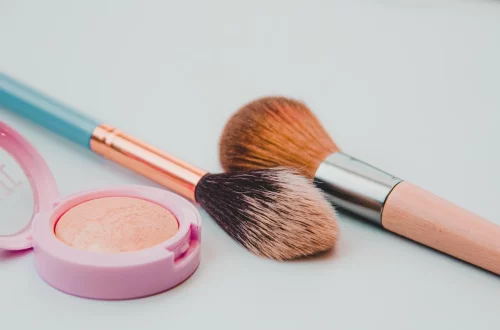
Vanilla Extract Nutrition Facts You Should Know for Healthy Cooking
Vanilla extract is a beloved ingredient in many kitchens around the world, renowned for its rich, sweet flavor and aromatic qualities. Derived from the beans of the vanilla orchid, this natural extract has been used for centuries not just in cooking and baking, but also for its potential health benefits. As culinary enthusiasts and health-conscious consumers alike seek to enhance their dishes with natural flavors, understanding the nutritional profile of vanilla extract becomes essential.
While often considered a simple flavoring agent, vanilla extract is packed with a range of compounds that can contribute to both the sensory experience of meals and may offer certain health advantages. The popularity of vanilla extract has surged in recent years, partly due to the growing trend of using natural ingredients in cooking. This shift emphasizes the importance of knowing what goes into our food and how those ingredients can impact our well-being.
As we delve deeper into the nutritional facts of vanilla extract, it becomes clear that this humble ingredient is far more than just a sweet addition to our favorite recipes. From its antioxidant properties to its potential role in enhancing overall health, vanilla extract offers a fascinating glimpse into the intersection of flavor, nutrition, and wellness.
Understanding Vanilla Extract Nutritional Components
Vanilla extract is primarily composed of water, alcohol, and a variety of flavor compounds, with vanillin being its most prominent component. This unique chemical structure not only gives vanilla its distinctive flavor but also contributes to its potential health benefits. One of the most notable aspects of vanilla extract is its low caloric content. A typical serving of vanilla extract contains around 12 calories, which makes it an excellent choice for flavoring without adding significant calories to your meals.
In addition to caloric value, vanilla extract contains trace amounts of vitamins and minerals. It provides small quantities of B vitamins, particularly niacin and riboflavin, which are essential for energy metabolism and maintaining healthy skin. Furthermore, some studies suggest that vanilla extract may contain antioxidants that help combat oxidative stress in the body. Antioxidants play a crucial role in neutralizing free radicals, potentially reducing the risk of chronic diseases and supporting overall health.
However, it is essential to note that the nutritional benefits of vanilla extract are most pronounced when used in moderation as part of a balanced diet. Overconsumption can lead to excessive intake of alcohol, especially in extracts that contain higher alcohol content. When cooking or baking, using pure vanilla extract is preferable to imitation vanilla, as the latter often contains added sugars and artificial flavorings, which can detract from its nutritional value.
In summary, while vanilla extract may not be a significant source of macronutrients, its unique composition and potential antioxidant properties make it a valuable addition to a health-conscious kitchen. Understanding these nutritional components allows cooks and bakers to make informed choices about how to incorporate this beloved flavor into their culinary creations.
Health Benefits of Vanilla Extract
Vanilla extract is more than just a flavor enhancer; it also offers an array of potential health benefits that can contribute to overall well-being. One of the most significant advantages is its antioxidant properties. The compounds found in vanilla extract, particularly vanillin, have been shown to possess antioxidant effects. Antioxidants are crucial in protecting cells from oxidative damage, which can lead to various health issues, including heart disease and cancer.
Moreover, vanilla extract has been studied for its potential anti-inflammatory properties. Chronic inflammation is a common underlying factor in many diseases, and incorporating anti-inflammatory foods into the diet can be beneficial. Vanilla extract may help mitigate inflammation in the body, making it a worthy addition to a healthy diet.
Additionally, the aroma of vanilla has been linked to psychological benefits. Studies suggest that the scent of vanilla can have calming effects, reducing stress and anxiety levels. This aromatic quality makes vanilla extract not only a delightful ingredient in desserts but also an excellent choice for promoting relaxation in various culinary applications.
Furthermore, vanilla extract may aid in digestion. Traditionally, it has been used as a remedy for digestive issues, and while more research is needed in this area, its soothing properties could be beneficial for those experiencing mild digestive discomfort.
It is important to keep in mind that while vanilla extract may offer these potential health benefits, it should not be viewed as a cure-all. A balanced diet, rich in a variety of nutrients, combined with a healthy lifestyle, is essential for maintaining good health. Always consult with a healthcare professional for specific health concerns or dietary changes.
Incorporating Vanilla Extract into Healthy Recipes
Incorporating vanilla extract into your cooking can be both enjoyable and beneficial. This versatile ingredient can elevate the flavor profile of various dishes while maintaining a focus on health. Here are some creative ways to use vanilla extract in your recipes:
1. **Smoothies**: Adding a teaspoon of vanilla extract to your morning smoothie can enhance the flavor without adding sugar. Combine it with fruits like bananas and berries, along with spinach or kale for a nutrient-packed drink.
2. **Baked Goods**: Vanilla extract is a staple in many baked recipes. When making muffins, pancakes, or waffles, a splash of vanilla can enhance the overall flavor. Opt for whole-grain flours and natural sweeteners like honey or maple syrup to keep your baked goods healthy.
3. **Oatmeal**: Stirring in vanilla extract into your bowl of oatmeal can transform your breakfast. Pair it with fresh fruits, nuts, or seeds for a wholesome meal that is both satisfying and delicious.
4. **Homemade Dressings**: Vanilla extract can even find its way into salad dressings. Combine it with olive oil, balsamic vinegar, and a touch of honey for a unique and flavorful dressing that complements a variety of salads.
5. **Caffeine-Free Beverages**: For a soothing evening drink, consider mixing warm almond milk with a dash of vanilla extract and a sprinkle of cinnamon. This comforting beverage can be a delightful alternative to caffeine-laden drinks.
By creatively incorporating vanilla extract into your meals, you can enjoy its delightful flavor while reaping potential health benefits. Remember to use it in moderation, as a little goes a long way, ensuring that you maintain the balance in your diet.
Choosing the Right Vanilla Extract for Cooking
When it comes to selecting vanilla extract, quality is key. The market offers various types of vanilla products, and understanding the differences can help you make the best choice for your culinary needs.
**Pure Vanilla Extract**: This is the gold standard for cooking. Pure vanilla extract is made by steeping vanilla beans in alcohol, which extracts the natural flavors. It contains no additives or artificial ingredients, making it the healthiest choice for flavoring your dishes.
**Imitation Vanilla Extract**: This product is often cheaper and made from synthetic vanillin derived from sources like lignin or guaiacol. While it can provide a similar taste, it lacks the depth and complexity of pure vanilla. Moreover, it often contains additional sugars and artificial ingredients, which may not align with a healthy cooking approach.
**Vanilla Bean Paste**: This is a concentrated form of vanilla that contains both the seeds and extract from vanilla beans. It is a fantastic option if you’re looking for a more intense vanilla flavor and is especially useful in recipes where the visual appeal of vanilla specks is desired, such as in custards or frostings.
**Vanilla Powder**: Made from ground vanilla beans, vanilla powder is a great alternative to liquid extracts. It is alcohol-free and can be used in dry recipes without altering the texture. However, it is generally more expensive and can sometimes be harder to find.
When purchasing vanilla extract, always check the label for ingredients. Aim for products labeled as “pure vanilla extract” to ensure you are getting the highest quality. Storing your vanilla extract in a cool, dark place can also help preserve its flavor and potency over time.
In conclusion, vanilla extract is a versatile and nutritious ingredient that can enhance both flavor and potential health benefits in your cooking. By understanding its nutritional components, benefits, and how to incorporate it into your meals, you can enjoy this delightful flavor while making healthier choices in the kitchen.
**Disclaimer**: This article is for informational purposes only and should not be considered medical advice. Always consult with a healthcare professional for any health-related concerns or questions.




